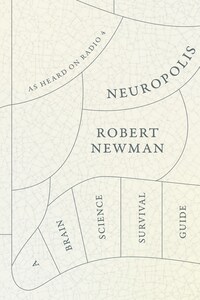COPYRIGHT
William Collins
An imprint of HarperCollinsPublishers 1 London Bridge Street London SE1 9GF WilliamCollinsBooks.com
This eBook first published in Great Britain by William Collins in 2017
Text © Robert Newman 2017
Cover design by Jonathan Pelham
The author asserts his moral right to be identified as the author of this work.
A catalogue record for this book is available from the British Library.
All rights reserved under International and Pan-American Copyright Conventions. By payment of the required fees, you have been granted the non-exclusive, non-transferable right to access and read the text of this e-book on-screen. No part of this text may be reproduced, transmitted, down-loaded, decompiled, reverse engineered, or stored in or introduced into any information storage and retrieval system, in any form or by any means, whether electronic or mechanical, now known or hereinafter invented, without the express written permission of HarperCollins.
Source ISBN: 9780008228651
Ebook Edition © April 2017 ISBN: 9780008228699
Version: 2017-04-11
LIST OF CONTENTS
Cover
Title Page
Copyright
Dedication
Introduction
1 Voxel & I
2 On Rafts Across the Sea of Okhotsk
3 Humouring the Chameleon
4 When You’re Snarling
5 Phineas Gage and the Myth of the Supermax Brain
6 Robot New Man
7 I’m Looking Through You
8 Pavlov’s Disobedient Dogs
9 ‘Scientists Discover the Love Spot’
10 The Neurobiology of Guilt
11 Why the Long Face?
12 Like Yesterday
13 The Myth of the Stone Age Brain
14 ‘Found: The Brain’s Centre of Wisdom’
15 The Death of Allegory
16 The Body’s in Trouble
17 The Fabergé Brain
18 A Strange Kind of Realism
19 Too Much Monkey Business
20 How Mind Makes Brain
21 The Origin of Mind
22 Attack of the Killer Sci-Fi
23 The Neurobabble and the Damage Done
Bibliography
Thanks and Acknowledgements
About the Publisher
INTRODUCTION
To read the current crop of brain science books and articles is to discover that we live in ‘a colourless, odourless, tasteless, silent world’,* where ‘smiling evolved from an aborted snarl,’† where ‘Japanese people struggle to tell the difference between fear and surprise,’‡ and where ‘there is nothing special about human brains that a sufficiently complex computer couldn’t do just as well’.§ So much so, in fact, that some suggest we will soon be able to ‘upload consciousness, escaping the biological wetware from which we have arisen’.¶
* David Eagleman, The Brain: The Story of You, 2015.
† V. S. Ramachandran, Phantoms in the Brain, 1998.
‡ Dick Swaab, We Are Our Brains, 2014.
§ Brian Cox, interview by Hannah Devlin,The Times, 6 September 2014.
¶ David Eagleman, The Brain: The Story of You, 2015.
This sort of talk slanders and libels us but it is also very funny with its runaway extrapolations that leave science far behind. In fact this book grew out of a stand-up comedy show called The Brain Show, which toured for a hundred gigs, and then developed into a BBC Radio 4 comedy series.
My argument in this book is that brainless interpretations of brain science are doing our heads in more than we know by giving us a dehumanising and pessimistic picture of ourselves. This picture, I argue, derives not from science at all but from philosophical stowaways. Indeed if we look at what the latest neuroscience actually tells us, then a very different picture emerges.
‘But who are you to talk about any of this?’ was one interviewer’s opening question to me on live national radio. I opened and closed my mouth like a roach on a riverbank. Minutes passed. I just didn’t know what to say. I never did come up with a reply. Who am I indeed to trespass on the brain scientist’s bailiwick?
In his 1940 lecture series Dynamics of Psychology, however, German psychologist Wolfgang Köhler praised ‘trespassing as a scientific technique’, on the grounds that what is merely special data in one field may turn out to have much broader significance in another. Now this doesn’t mean the trespasser sees the big picture in a way that eludes everyone else. Trespassing can be helpful by accidentally treading spores from one field into another, where they unexpectedly start fizzing and wriggling into life. Or the trespasser might find fertilizer sacks full of rubble and rusty cogs blocking the entrances to badger setts. Certainly one of the great joys of researching this book has been to disinter fascinating brain science buried under all the reductive bluster.
And then there’s the fact that brain science appears to have arrogated to itself all understanding of human behaviour anyway, which makes it kind of hard to move a muscle without trespassing. In fact, since the brain science fiefdom now includes life, the universe and everything, the question is who is the real trespasser here? In the words of the great comedian Michael Redmond:








